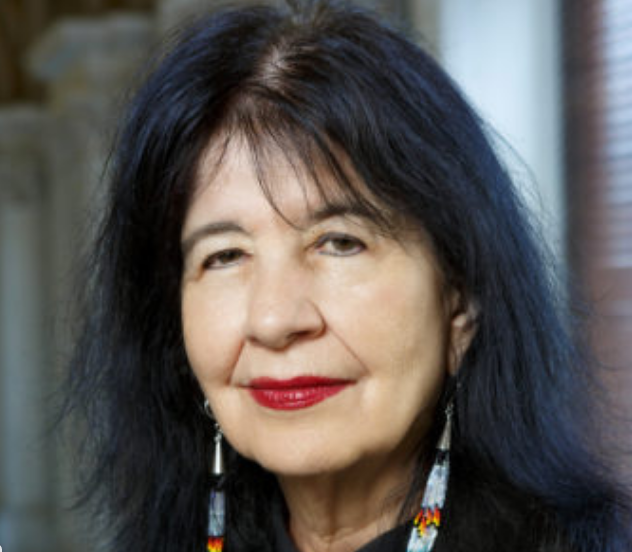Former U.S. Poet Laureate Joy Harjo (Muskogee Creek) will receive the 2023 Harper Lee Award at the Monroe Literary Festival on Saturday, March 4, 2023.

The Harper Lee Award was named after the author of the classic American novel To Kill a Mockingbird.
Selected by a committee of writers and scholars, the annual award recognizes the lifetime achievement of a writer either born in Alabama or strongly connected to the state.
Harjo served three terms as the 23rd Poet Laureate of the United States from 2019-2022 and is the first Native American to hold the honor.
"Joy Harjo is one of the great American writers of our time. All her artistry has deep ties, familial and spiritual, to the state of Alabama," said selection committee member Frye Gaillard. "Ms. Harjo is a member of the Muskogee Nation – and celebrates a connection to her Alabama homeland that was broken, but not erased, by the Trail of Tears."
Harjo is the author of nine books of poetry, including the highly acclaimed An American Sunrise, several plays and children’s books, and two memoirs, Crazy Brave and Poet Warrior,
Harjo was the winner of the 2022 Academy of American Poets Leadership Award, She has several other honors that include the Ruth Lily Prize for Lifetime Achievement from the Poetry Foundation, the Academy of American Poets Wallace Stevens Award, two NEA fellowships and a Guggenheim Fellowship.
As a musician and performer, Harjo has produced seven award-winning music albums including her newest, I Pray for My Enemies. She is executive editor of the anthology When the Light of the World was Subdued, Our Songs Came Through – A Norton Anthology of Native Nations Poetry and the editor of Living Nations, Living Words: An Anthology of First Peoples Poetry, the companion anthology to her signature Poet Laureate project.
She is a chancellor of the Academy of American Poets, Board of Directors Chair of the Native Arts & Cultures Foundation, and is the first Artist-in-Residence for Tulsa’s Bob Dylan Center.
Harjo resides in Tulsa, Oklahoma.
More Stories Like This
Chickasaw Holiday Art Market Returns to Sulphur on Dec. 6Center for Native Futures Hosts Third Mound Summit on Contemporary Native Arts
Filmmakers Defend ‘You’re No Indian’ After Demand to Halt Screenings
A Native American Heritage Month Playlist You Can Listen to All Year Long
11 Native Actors You Should Know
Help us defend tribal sovereignty.
At Native News Online, our mission is rooted in telling the stories that strengthen sovereignty and uplift Indigenous voices — not just at year’s end, but every single day.
Because of your generosity last year, we were able to keep our reporters on the ground in tribal communities, at national gatherings and in the halls of Congress — covering the issues that matter most to Indian Country: sovereignty, culture, education, health and economic opportunity.
That support sustained us through a tough year in 2025. Now, as we look to the year ahead, we need your help right now to ensure warrior journalism remains strong — reporting that defends tribal sovereignty, amplifies Native truth, and holds power accountable.
 The stakes couldn't be higher. Your support keeps Native voices heard, Native stories told and Native sovereignty defended.
The stakes couldn't be higher. Your support keeps Native voices heard, Native stories told and Native sovereignty defended.
Stand with Warrior Journalism today.
Levi Rickert (Potawatomi), Editor & Publisher


